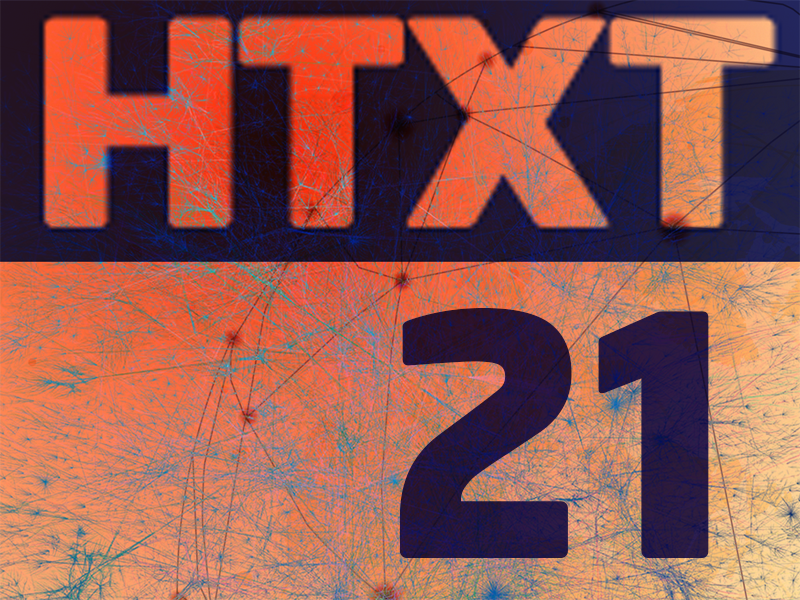Co-presence practices during COVID-19: co-playing within online platforms
Article Sidebar

Main Article Content
Online co-playing is a practice of co-presence that allows people located in different physical places to socialize. This practice has increased during the period of lockdown (march and june of 2020) due to the COVID-19 health crisis. This study aims to understand online co-playing practices during the lockdown period, in various games and platforms. In this study, a case study methodology with digital ethnographic techniques was implemented: participant observation and semi-structured interviews. Three profiles of co-playing practitioners have been identified: initiation, adaptation and intensification. The first profile is characterized by having started to carry on these practices during the lockdown. The second corresponds to the adaptation of playful practices to online digital spaces. The third corresponds to the increment of time and frequency of play of those who already co-played online. The results show that co-playing online has allowed co-presence to occur, both synchronous or asynchronous, especially among peers, and to a lesser extent among family members. Thus, a generational gap has been detected. Finally, the practice of co-playing during the lockdown showed to be an activity motivated by achieving a wellbeing state, which has helped to strengthen social issues, to counter the distress and other negative feelings produced by the lockdown and all the social consequences associated with COVID-19.
Article Details

This work is licensed under a Creative Commons Attribution-NonCommercial-NoDerivatives 4.0 International License.
(c) Fernanda Pires, Júlia Vilasís-Pamos, Priscila Alvarez-Cueva, Ona Anglada-Pujol, 2020
Copyright

This work is licensed under a Creative Commons Attribution-NonCommercial-NoDerivatives 4.0 International (CC BY-NC-ND 4.0).
Fernanda Pires, Universitat Pompeu Fabra
Fernanda Pires is a Juan de la Cierva postdoctoral researcher in the MEDIUM research group, at the Communication Department of the Universitat Pompeu Fabra-Barcelona. She has a PhD in Information and Knowledge at the Open University of Catalonia Society with an international mention. She has done research stays in Brazil (USP - Universidade de São Paulo) and Australia (RMIT - Royal Melbourne Institute of Technology). She is currently involved in research about social practices with interactive digital platforms and how users relate to the logic imposed by those platforms. She also investigates informal media education through creative practices. She is an expert in qualitative digital methods and practices of digital co-presence such as connected co-viewing.
Júlia Vilasís-Pamos, Universitat Pompeu Fabra
Júlia Vilasís-Pamos is a PhD student in Communication, and member of the MEDIUM Research Group, at the Communication Department of the Pompeu Fabra University (UPF). She is graduated in Political and Administration Sciences (UPF, 2016) and has completed the Master in International Studies of Power, Media and Difference (UPF, 2018). She is currently working on her doctoral thesis on the construction of gamer identity through gender and social class. Her main research lines are video game studies, gender, social class, popular culture and youth studies.
Priscila Alvarez-Cueva, Universitat Pompeu Fabra
Priscila Alvarez-Cueva is a doctoral student in the Department of Communication at the Pompeu Fabra University. She is member of two research groups, CRITICC and JOVIScom, at the UPF. She is currently working on her doctoral thesis on commercial music and its role in the construction of identities between adolescents and young adults, in Spain and Ecuador. She has a bachelor's degree in social communication and advertising from the Universidad del Azuay (Cuenca, Ecuador), and a master's degree in international studies, media, power and difference from the Pompeu Fabra University. In 2020, she made a research visit at the University of Porto.
Ona Anglada-Pujol, Universitat Pompeu Fabra
Ona Anglada-Pujol is a PhD student in Communication at the Communication Department of the Pompeu Fabra University (UPF), and member of the MEDIUM research group. She is graduated in Audiovisual Communication (UPF, 2016) and has completed the University Master's Degree in Research in Social Communication (UPF, 2019). Her doctoral thesis focuses on the slash fiction practices of gamers' fandom and discourses on gender, sexuality and romantic love, as well as the relationship that youtubers themselves establish with these texts. Her lines of research are gender and queer studies, fans and celebrity studies.
Most read articles by the same author(s)
- Priscila Alvarez-Cueva, Maria-Jose Masanet, Ana Belén Cano-Hila, The narratives of the quarantine during the COVID-19 crisis through music: shared emotions and activities by Stay Homas , Hipertext.net: No. 21 (2020): COVID-19 and Communication